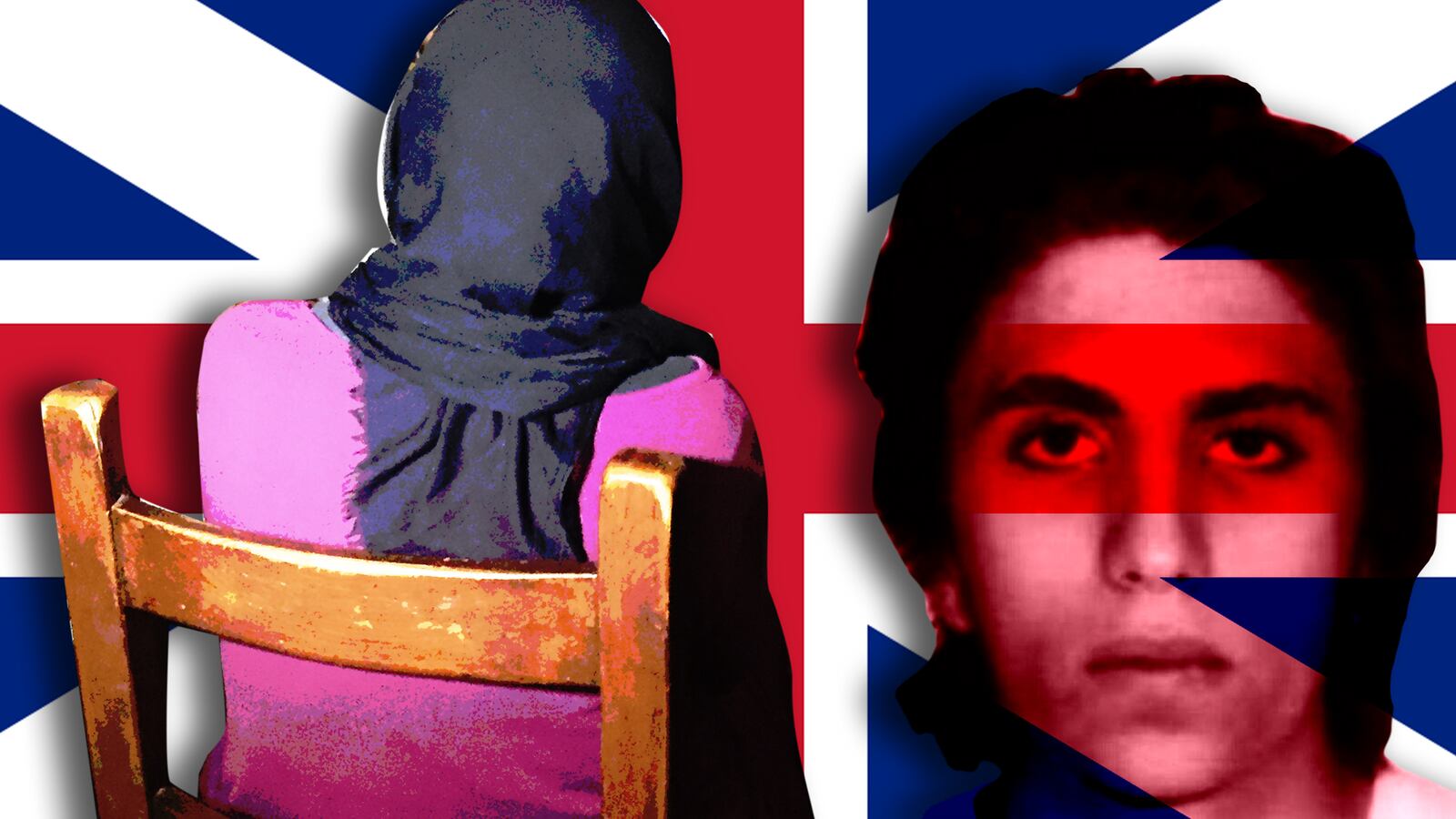FAGNANO, Italy—Valeria Khalija Collina, the mother of London Bridge terrorist Youssef Zaghba, is uneasy, shifting in her chair, showing no emotion, her eyes vacant, as we talk in her modest first-floor apartment in this tiny village outside Bologna.
The 68-year-old, originally from here, wears a black headscarf and looks like almost any Italian matron her age. But as she slaloms a fine line between condemning her 22-year-old son for the deadly June 4 terrorist attack on London Bridge and explaining away his radical views, she seems both scared and confident.
Her living room is decorated with classic Italian prints of still life fruit as well as Islamic art. The floor is covered with a large oriental carpet and low pillows. A gilded copy of the Quran is on display.
“There are no words,” she told The Daily Beast and a handful of journalists gathered in her living room. “He met the wrong people. I don’t know what they did to him.”
Collina said she knew her son was being radicalized, but she didn’t know exactly what to do about it, though she stops short of taking the blame. “Parents always ask what they could have done in situations like this,” she said. “It’s a natural response.”
She met her Moroccan husband almost 30 years ago in Bologna and moved with him to Fez, Morocco, converted to Islam, and lived the life of a solemn and devout Muslim wife until two years ago, when her husband took a second wife, which she says “was his right” but something she did not entirely agree with.
“I signed off on it,” she said, explaining that for a Muslim man to have a second wife, the first wife must agree. But she couldn’t live with it, so she moved back to Italy to “start over.”
When she came back, her son Youssef tagged along. He traveled on his Italian passport to the United Kingdom, where he met friends his mother didn’t like and worked part time at a fast food chicken restaurant before returning to Italy. He was stopped at Stansted Airport once when he was trying to fly back to Italy to visit his mother, but he was released without incident.
“He traveled around Italy in February and March of 2016,” she explained. During that time, she said, he showed her an ISIS video in which the terror organization was depicted “handing out food and rebuilding roads and bridges.” She said her son wanted to live in a “pure Islamic state” and that Syria was where he thought he could find a job and raise a family. In March 2016, he tried to do just that but got caught.
“In March 2016, he was visiting me in Italy and told me that he wanted to travel to Rome,” she said, before explaining that he was really intending to fly to Istanbul, Turkey, and then move on to Syria. “He was stopped by the police at the Bologna airport because of his suspect appearance and because he only had a small backpack and a one-way ticket to Istanbul.”
Italian police took his passport after they found propaganda material on his cellphone and started an investigation, but returned the passport a few months later when his lawyer won him a reprieve. In Italy, it is not illegal to have terrorist materials on personal cellphones.
Still, the Italians say they put him on a European watch list and alerted authorities in the United Kingdom and Morocco that he was potentially dangerous. A few months after he got his passport back, he traveled to London, where he took a job at the same fast food chicken restaurant and started an internship at the Eman television channel as a sound man. Collina, who went to visit him, grew even more concerned.
“I didn’t like his neighborhood or his friends,” she said. “I didn’t feel good about it at all.”
He kept in touch with her and told her how happy he was that he had been promoted from his internship to a six-month contract at the television station and that he had saved enough money to buy a secondhand car. He seemed to have plans for the future. Collina even had a ticket to go visit him to celebrate the end of Ramadan on June 24. She said they joked that he would come to pick her up at the airport “with flags on his new car” as if she were a diplomat. That visit will never happen.
On June 1, Youssef called his mother for the last time. She sensed what she calls “melancholy” in his voice and, in retrospect, said he was making his farewell call. He talked to her about the garden in the house where he lived, which she now believes was his reference to “paradise” or heaven as described in the Quran.
A few days after she last spoke with him, he disappeared off the radar. When the London attacks occurred, she did not think for a minute he might be involved, but she wondered if perhaps he had gone undercover “to avoid getting into trouble.” But when she couldn’t reach him, she alerted the Italian authorities that he was missing. On Monday, when a police car pulled up to her apartment, she was sure they were coming to give her good news or tell her that perhaps he was in trouble again. Instead, they told her he was dead, killed by police for carrying out the June 4 terrorist attacks.
“I didn’t want to believe it,” she said. “How did it come to this?”
Now she says she will dedicate her life to making sure no other mother has to go through her pain. “I will do whatever I can to make sure this never happens again.”






